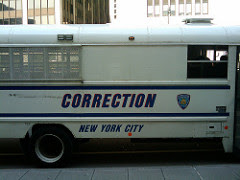In this case, the appellant failed to pay the appeal fee within the 2-month time limit of Art. 108. It would appear that the intention had been to pay when the notice was submitted using online filing, but the correct payment method (via deposit account) was not entered; payment method "not specified" had been selected. Fortunately, the written notice (attached in pdf format) contained a statement that the appeal fee was "herby paid via online fee payment" and the notice was filed well in advance of the 2-month time limit.
The appellant was not notified of any defect in the notice of appeal, but received a loss-of-rights communication, whereupon the appeal fee was immediately paid along with a request that the fee be considered paid in time. The appellant also filed a request for re-establishment of rights. The appellant's arguments were based on G 2/97and the protection of legitimate expectations.
The statement in the notice of appeal could not, of course, constitute a debit order submitted by electronic means and, as remarked in G 2/97, users of the EPO have a duty to do everything in their power to prevent a loss of rights. This decision also sets out that a Board of Appeal is under no obligation to notify an appellant of a missing appeal fee if there is no indication in any of the filed documents from which the EPO could infer that the appellant would, without such notification, inadvertently miss the time limit.
It was therefore considered whether the documents submitted in this case contained a clearly identifiable deficiency in this respect. The Board noted that it must be expected that a notice of appeal is read, meaning that some kind of plausibility check is performed. The statement in the notice regarding online fee payment was a clear indication of intent to perform a procedural act. That this intention did not correspond to the factual act was also clearly recognizable. The Board found the circumstances in this case analogous to those in G 02/07, where the notice of appeal made reference to an enclosed cheque which had not been enclosed.
The appellant could therefore have expected notification from the EPO that the information on payment method was missing, which would have allowed the fee to be paid on time. The appeal was therefore deemed filed and the Board ordered re-imbursement of the re-establishment fee.
On the last day of the original 4-month period to respond to an office action, the applicant sent a request for an extension of the time limit by two months to six months. The request was granted. The applicant filed his response on the last day of the 6-month period. About a month later, the applicant received a loss-of-rights communication. The applicant was informed that the "application" had been received at the EPO on 7 December 2011 and that the request for extension of the time limit had therefore been granted "erroneously", the time limit having expired on 6 December 2011. The "extension of time limit" was "considered not having been granted" and, consequently, the applicant's reply was deemed to have been received late...
The proprietor filed an appeal against the decision to grant, after the patent was granted with errors -introduced by amendments by the Examining Division, but implicitly approved by the applicant with his R.71(3) response- and after being pointed out to the option of filing an appeal by the formalities officer of the EPO. But his appeal was not succesfull: in light of the decision G 1/10, the appeal was inadmissible. The Board however ordered a reimbursement of the appeal fee for reasons of equity, as the proprieter filed the appeal based on incorrect advice from the office.

Admissibility of an appeal is quite often a point of discussion. In this case the Examining Division refused to grant a patent in a decision and the Applicant requested a correction of the (original) decision. When the Examining Division re-issued the decision it was not made completely clear that the re-issued decision was a correction of the previous decision (however, this is implicitly clear because the Applicant requested a correction). Case law defines that a correction of a decision has retrospective effect and that, thus, the date of refusing the patent application does not change and, thus, the appeal term still starts at the date of the original decision. In this case the Applicant filed a notice of appeal within the 2 months from the original decision, but filed the ground of appeal after the end of the 4 months period from the date of the original decision (and within 4 months from the date on which the decision was re-issued). In some appeal cases the principle of "protection of legitimate expectations" was applied in "similar" cases and the appeal was admissible. However, the Board had some doubts that this situation was similar enough to the previous cases. "Albeit not entirely without hesitation", the Board decided on this subject.









